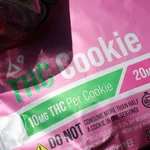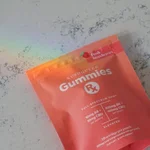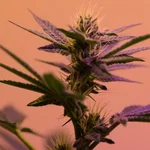Understanding Edibles and Their Effects
Edibles are a form of cannabis-infused food or drink that can provide a longer and more intense high compared to smoking or vaping cannabis. Edibles contain THC, the psychoactive ingredient in cannabis, and can take longer to kick in than smoking or vaping. The high from edibles can last for several hours, and the effects can be more unpredictable compared to other forms of cannabis consumption.
When it comes to edibles, it’s important to understand how they work and their effects on the body. Edibles are processed differently by the body compared to smoking or vaping cannabis. When you smoke or vape cannabis, THC is absorbed through the lungs and quickly enters the bloodstream, causing a rapid onset of effects. With edibles, THC is absorbed through the digestive system and metabolized by the liver, which can take longer for the effects to kick in.
The Relationship Between Edibles and Appetite
One of the most common misconceptions about cannabis is that it increases appetite, also known as the “munchies.” While this may be true for smoking or vaping cannabis, the effects of edibles on appetite can be more complicated.
Some people may experience an increase in appetite after consuming edibles, while others may experience a decrease in appetite. This can depend on several factors, including the individual, the type of edible consumed, the dosage, and the timing of consumption.
Factors That Can Affect Appetite When Consuming Edibles
Dosage
The dosage of edibles can have a significant impact on appetite. A higher dose of edibles can result in a stronger high, which can sometimes lead to a decrease in appetite. On the other hand, a lower dose of edibles may not produce the same intense high and may not affect appetite in the same way.
Type of Edible
The type of edible can also play a role in the effects on appetite. Edibles that are high in fat, such as brownies or cookies, may produce a stronger high and potentially increase appetite. In contrast, edibles that are high in CBD, a non-psychoactive compound found in cannabis, may not produce the same effects on appetite.
Timing of Consumption
The timing of edibles consumption can also affect appetite. Consuming edibles on an empty stomach can result in a quicker onset of effects and potentially increase appetite. However, consuming edibles after a meal may result in a slower onset of effects and potentially decrease appetite.
The Benefits of Edibles for Appetite Loss
While edibles may not always increase appetite, they can be beneficial for individuals experiencing appetite loss due to certain medical conditions or treatments. For example, chemotherapy can often result in nausea and appetite loss, which can be difficult for patients to manage. Edibles can be a helpful way for these patients to increase appetite and manage symptoms.
In addition, edibles can be beneficial for individuals with certain medical conditions that affect appetite, such as HIV/AIDS or anorexia nervosa. Edibles can provide a safe and effective way to increase appetite and improve overall health.
Conclusion
In conclusion, the relationship between edibles and appetite can be complex and depends on several factors, including the individual, the type of edible consumed, the dosage, and the timing of consumption. While edibles may not always increase appetite, they can be beneficial for individuals experiencing appetite loss due to certain medical conditions or treatments. As with any form of cannabis consumption, it’s important to understand the effects and potential risks before consuming edibles.












